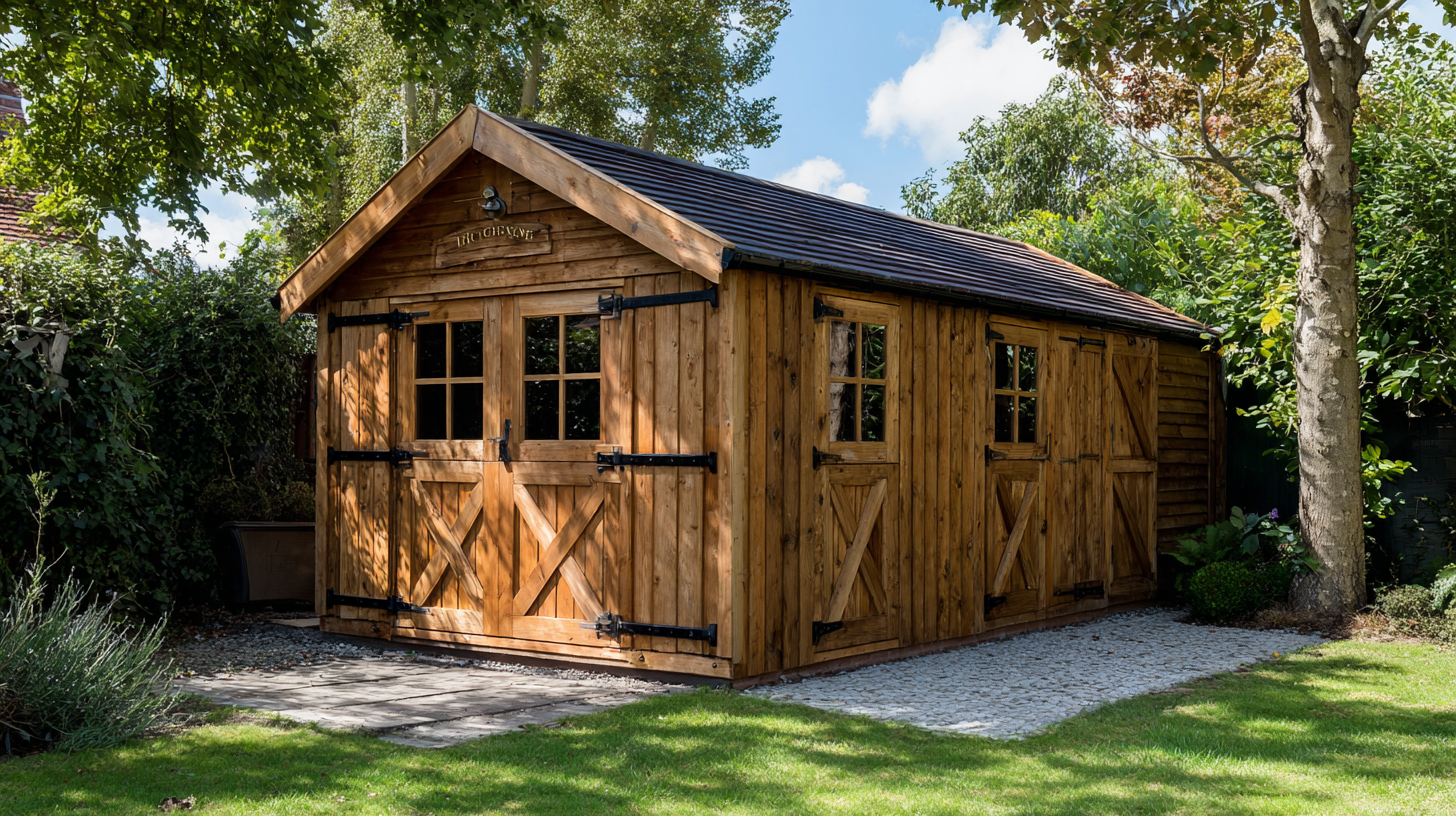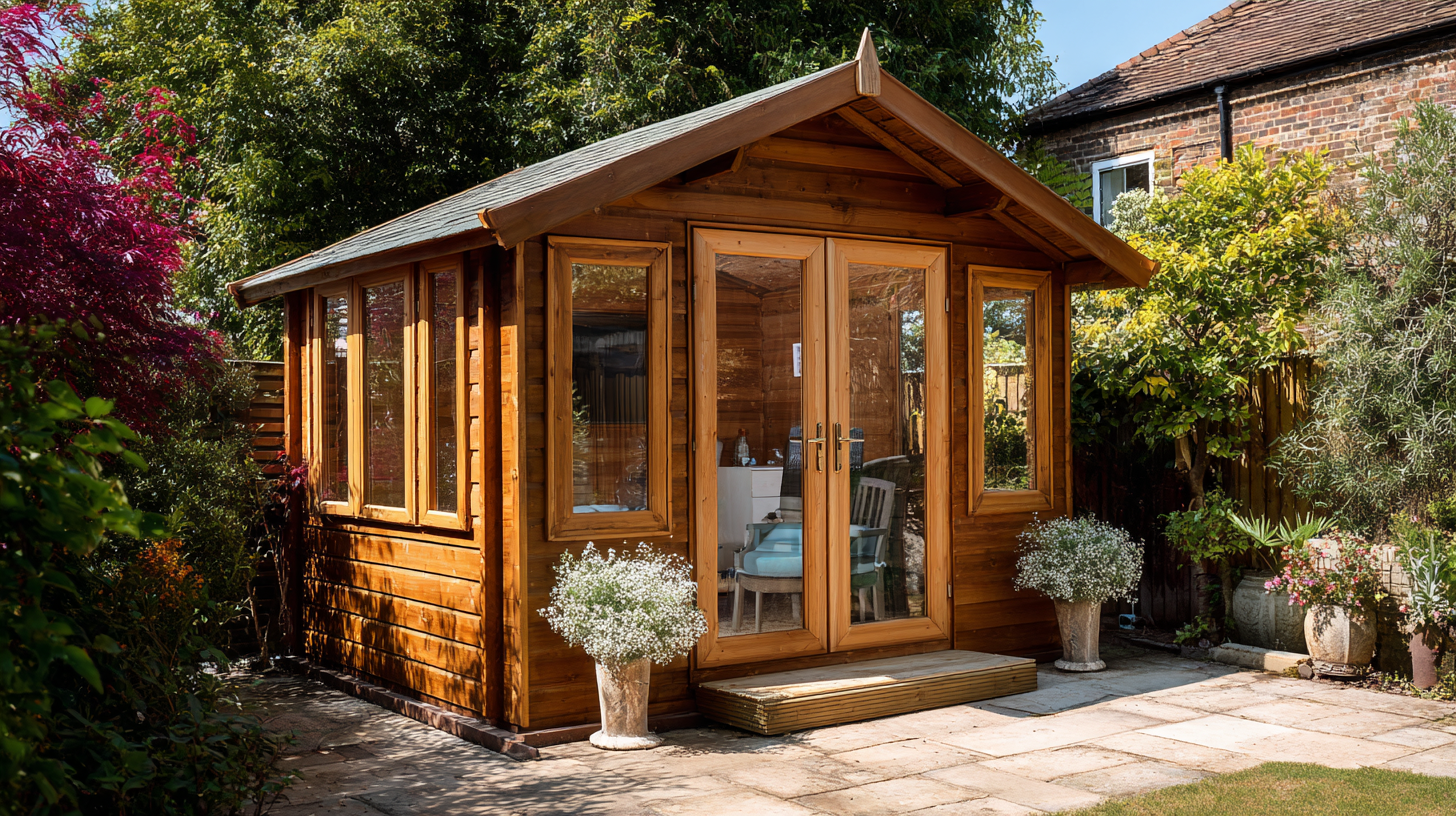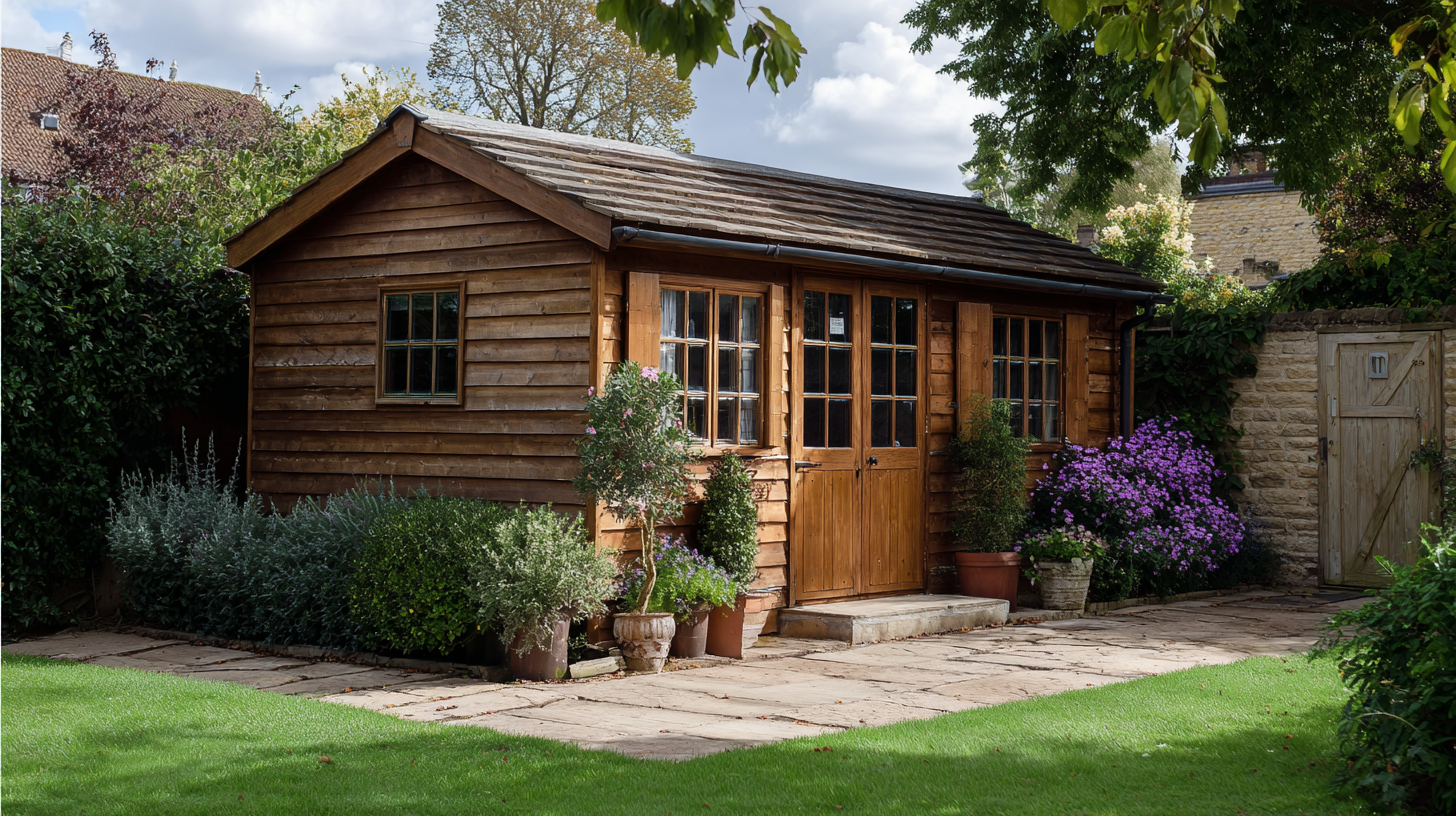Sorry, your browser is not supported. For a better experience, keep your browser up to date. Check here for latest versions
Investing in **Wooden Garden Sheds** not only enhances the aesthetic appeal of one’s outdoor space but also provides functional benefits that cater to a variety of gardening and storage needs. According to a report by Statista, the global garden shed market is projected to reach approximately $1.6 billion by 2025, underscoring the growing interest in these structures. Wooden garden sheds, in particular, are favored for their durability and natural insulation properties, making them ideal for a range of climates and uses. Additionally, a survey from the Home Improvement Research Institute indicated that homeowners consider wooden structures more environmentally friendly compared to metal or plastic alternatives, as they offer better temperature regulation and a lower carbon footprint. By exploring the unique benefits of investing in the best wooden garden sheds, homeowners can leverage this trend to create versatile, stylish, and sustainable outdoor spaces tailored to their specific needs.

When considering the purchase of a wooden garden shed, it's essential to understand the key features that distinguish high-quality options from the rest. A report from the National Association of Landscape Professionals indicates that investing in durable materials can enhance the longevity of garden structures. Quality wooden sheds are often made from pressure-treated timber, which boasts a lifespan of up to 15 years, depending on maintenance and climate. Additionally, the use of natural, sustainable wood species not only provides strength but also supports eco-friendly practices, as highlighted in various industry sustainability reports.
Another critical feature to look for is construction quality. A well-constructed wooden shed includes reinforced joints and solid flooring, ensuring that it can withstand varying weather conditions. According to a survey by HomeAdvisor, homeowners can expect to spend between $1,000 and $2,500 on a quality shed, which adds significant value to their property. Furthermore, many high-quality wooden sheds come with customizable options, allowing homeowners to tailor their sheds for specific uses—be it storage, a workshop, or a garden office. This versatility is becoming increasingly sought after, as 62% of homeowners reported using outdoor buildings for multiple purposes, according to a recent market research study.
When it comes to investing in a wooden garden shed, identifying reliable suppliers is crucial to ensuring you get the best quality for your needs. Start by seeking suppliers with a strong reputation in the market, which can often be gauged through customer reviews and testimonials. Look for businesses that have been established for several years, as longevity in the industry usually indicates dependability and experience. Additionally, checking for certifications or memberships in relevant agricultural or home improvement associations can offer peace of mind regarding their legitimacy.

Another important aspect is assessing the range of options offered by suppliers. A good supplier should provide various designs, sizes, and finishes, allowing you to customize your wooden garden shed to fit your specific requirements. Don’t hesitate to inquire about sourcing practices as well, as environmentally friendly options reflect a commitment to sustainability. Finally, consider the post-purchase support, such as installation assistance and warranties, which can further enhance your investment and ensure that your wooden garden shed serves you well for years to come.
When selecting the perfect wooden garden shed, the choice of materials is crucial to ensure durability and aesthetics. High-quality wood species such as cedar and redwood are highly recommended due to their natural resistance to rot, insects, and decay. According to a report from the Forest Products Laboratory, untreated wood can last approximately 5-7 years, while treated or naturally durable species can extend that lifespan to over 20 years. This long-term investment not only saves money on repairs and replacement but also enhances the visual appeal of your garden space.
Additionally, consider the protective finishes used on your garden shed. Products like oil-based stains or sealants can significantly improve longevity. The American Wood Protection Association reports that sheds treated with premium finishes outperform untreated counterparts, increasing durability by up to 50%. Moreover, adequate insulation and moisture barriers should not be overlooked, as they help maintain a stable internal environment, protecting your tools and equipment from the elements. Prioritizing these essential materials will ensure that your garden shed is not only functional but also a lasting addition to your outdoor sanctuary.

When considering investing in wooden garden sheds, evaluating supplier reputation and customer reviews becomes crucial. A reliable supplier not only offers high-quality products but also demonstrates a commitment to customer satisfaction. Engaging with customer reviews allows potential buyers to gain insight into the experiences of others, helping them make informed decisions. This practice is akin to analyzing a business partner's history in the ever-evolving market—trustworthiness can be the determining factor in a successful investment.
**Tip:** Look for suppliers with a strong online presence and transparent customer feedback. Websites showcasing detailed reviews can provide vital information about the durability and quality of the garden sheds.
Additionally, seeking out recommendations from friends or online gardening communities can enhance your understanding of various suppliers. Just like businesses assess suppliers based on ESG (Environmental, Social, and Governance) performance, you’ll want to evaluate garden shed suppliers based on ethical practices and product sustainability.
**Tip:** Ask for samples or visit showrooms when possible. Physical inspections can reveal the craftsmanship and materials used, ensuring your investment stands the test of time.
| Benefit | Description | Supplier Reputation | Customer Review Score |
|---|---|---|---|
| Durability | Wooden garden sheds are known for their strength and longevity, able to withstand harsh weather conditions. | High | 4.5/5 |
| Aesthetic Appeal | Wooden sheds provide a natural look that blends seamlessly with garden environments. | Medium | 4.2/5 |
| Eco-Friendliness | Many wooden sheds are made from renewable resources, making them a sustainable choice. | High | 4.7/5 |
| Customization Options | Wooden sheds offer a variety of customization options for design and size. | Medium | 4.4/5 |
| Versatility | Can be used for storage, gardening tools, or as a workspace, enhancing their usability. | High | 4.6/5 |
| Increased Property Value | High-quality garden sheds can add value to your property. | Medium | 4.3/5 |
| Easy Maintenance | Wooden sheds require less maintenance compared to metal sheds, especially with proper treatment. | High | 4.8/5 |
Investing in the best wooden garden sheds involves a careful balance of cost and quality, much like navigating the complexities of an aging population within the U.S. healthcare system. According to a recent report from the National Association of Landscape Professionals, quality wooden garden sheds can increase property value by up to 15% and offer additional functional space for gardening tools, equipment, and hobbies. This investment can pay off significantly in the long run, especially when considering the rising costs of home renovations.
When selecting a wooden garden shed, it’s essential to assess both the initial investment and the materials used to ensure durability and longevity. High-quality pressure-treated wood not only withstands the elements but also requires less maintenance, ultimately saving homeowners money over time. The American Wood Council indicates that properly maintained wooden structures can last decades, providing a clear advantage in quality versus cheaper, less durable alternatives that may need frequent replacements. Making an informed decision in this context mirrors the healthcare industry’s need for strategic resource allocation to meet the demands of an aging society, where long-term investment in quality care and infrastructure is vital.